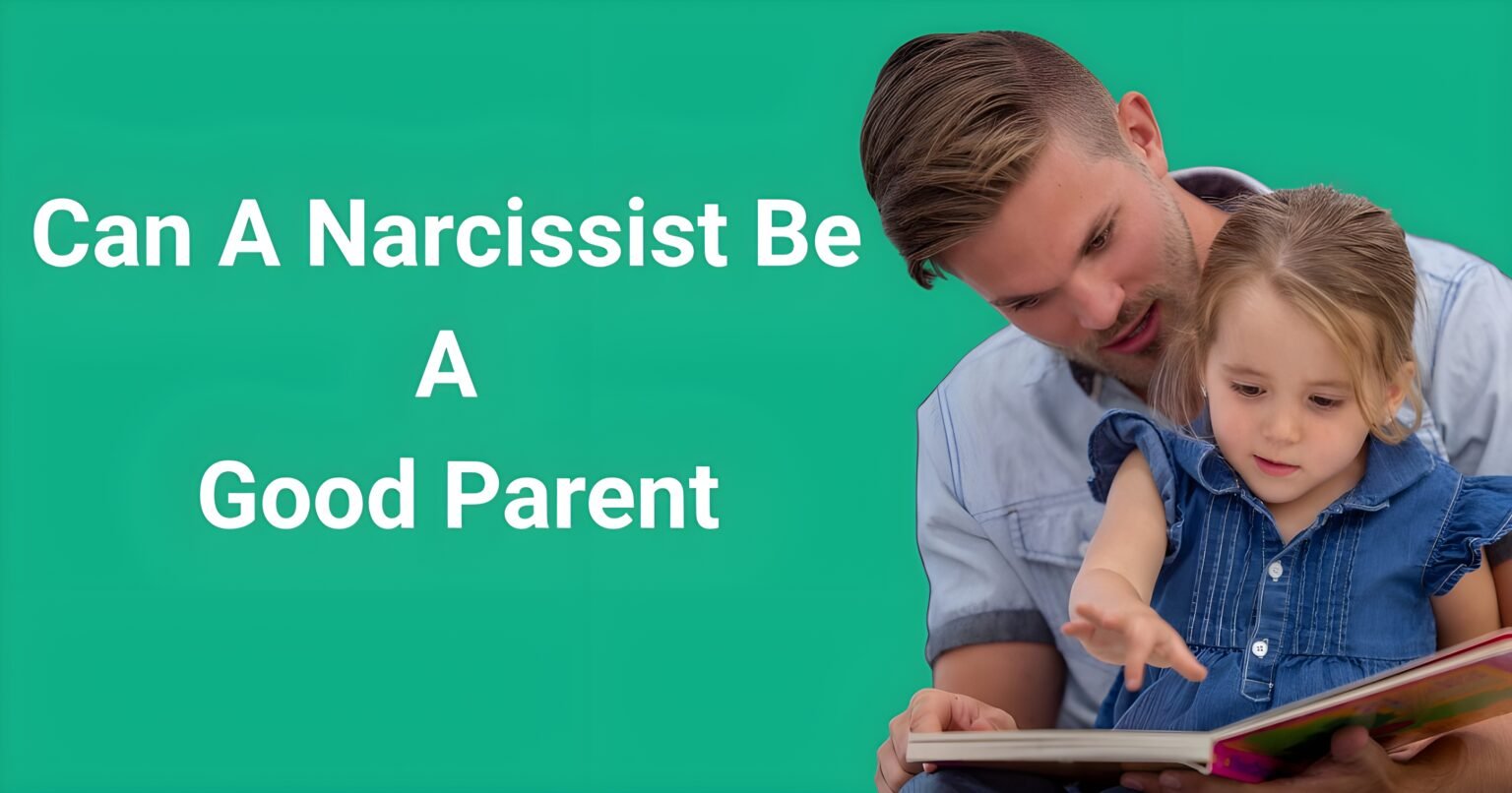Can a narcissist be a good parent? The answer broke me when I finally understood the truth after years of confusion, self-doubt, and wondering why I felt so empty despite having a parent who looked perfect from the outside. After working with thousands of adult children of narcissistic parents through NarcissismExposed.com as a Certified Narcissistic Abuse Specialist, I can tell you this realization will either validate everything you’ve secretly wondered about your childhood or completely shatter the illusion you’ve been desperately protecting.
- Understanding the Illusion: Why Narcissistic Parents Look “Good”
- The Devastating Realization: What “Good” Parenting Actually Requires
- Can A Narcissist Be A Good Parent? The Heartbreaking Truth
- The Long-Term Impact: How Narcissistic Parenting Shapes Adult Children
- Breaking the Cycle: Healing from Narcissistic Parenting
- The Intergenerational Impact: Protecting the Next Generation
- Key Takeaways: The Truth About Narcissistic Parenting
- Frequently Asked Questions
The devastating answer is no – a narcissist cannot be a genuinely good parent, no matter how much they appear to care or how well they perform the role publicly.
This isn’t about parents who make mistakes or have bad days. This is about a fundamental inability to provide the emotional attunement, unconditional love, and consistent support that children need to develop into healthy, whole adults. What looks like “good parenting” from a narcissist is actually sophisticated emotional manipulation designed to meet their own needs while creating children who exist to serve their parent’s ego.
The reason this truth broke me – and breaks so many adult children who discover it – is because it means accepting that the love we thought we received was conditional, the parent we idealized was performing, and the childhood we remember was built on a foundation of emotional manipulation rather than genuine care.
Understanding the Illusion: Why Narcissistic Parents Look “Good”
Before we explore why the question “can a narcissist be a good parent? The answer broke me” resonates so deeply with survivors, it’s crucial to understand why narcissistic parents often appear to be exceptional caregivers to the outside world and even to their own children, initially.
Narcissistic parents excel at creating what psychologists call “performative parenting” – they understand exactly what good parenting looks like and can execute it flawlessly when it serves their image or meets their emotional needs.
The illusion includes:
Public Performance Excellence: They volunteer at school events, coach sports teams, throw elaborate birthday parties, and ensure their children look perfect in family photos. To observers, they seem like dedicated, involved parents who prioritize their children’s wellbeing.
Intermittent Emotional Availability: They provide moments of intense connection, understanding, and validation that feel incredibly meaningful to their children. These moments create powerful emotional bonds and make children crave more of this special attention.
Material Provision: They often provide excellent material care – good schools, extracurricular activities, nice clothes, and comfortable homes. This tangible evidence of care makes it difficult for children to question whether they’re truly loved.
Selective Empathy: They can demonstrate remarkable understanding of their child’s emotions when it doesn’t threaten their own needs or image. This selective empathy creates confusion about whether the parent truly cares or not.
According to research published in the Journal of Family Psychology, children of narcissistic parents often report feeling simultaneously “special” and “invisible” – special when they serve their parent’s needs, invisible when they have needs of their own.
The performance mask slips when:
- The child’s needs conflict with the parent’s image or convenience
- The child displays independent thinking or challenges the parent’s authority
- The parent feels criticized or questioned about their parenting choices
- The child’s achievements don’t reflect well on the parent
- The parent’s own emotional needs take precedence over the child’s
In my work with adult children of narcissistic parents, I’ve observed that those who ask “can a narcissist be a good parent? The answer broke me” are often grappling with the cognitive dissonance between their lived experience of conditional love and their parent’s public image of dedication.
The Devastating Realization: What “Good” Parenting Actually Requires
Understanding why a narcissist cannot be a good parent requires examining what genuine parenting actually demands – qualities that are neurologically and psychologically impossible for narcissistic individuals to consistently provide.
Authentic good parenting requires:
Unconditional Love and Acceptance
Genuine good parents love their children for who they are, not for what they achieve or how they reflect on the parent. This means accepting their child’s unique personality, supporting their individual interests, and maintaining love even when disappointed or frustrated.
Narcissistic parents provide conditional love that depends on:
- The child’s achievements and how they make the parent look
- The child’s ability to meet the parent’s emotional needs
- The child’s compliance with the parent’s expectations and image
- The child’s role in maintaining the parent’s sense of superiority
Emotional Attunement and Validation
Healthy parents can recognize, understand, and respond appropriately to their child’s emotional needs. They validate feelings, help children process difficult emotions, and provide consistent emotional support.
Narcissistic parents struggle with emotional attunement because:
- They interpret their child’s emotions through the lens of their own needs
- They become threatened by emotions that don’t serve their agenda
- They lack the emotional empathy necessary for genuine attunement
- They use their child’s emotions as information to manipulate rather than support
Healthy Boundaries and Individuation Support
Good parents help their children develop their own identity, make age-appropriate decisions, and gradually become independent adults. They respect their child’s growing autonomy while providing guidance and support.
Narcissistic parents view individuation as a threat because:
- They need their children to remain dependent sources of validation
- They interpret independent thinking as personal rejection
- They fear losing control over their child’s role in their life
- They cannot distinguish between their own needs and their child’s needs
Consistent Emotional Safety
Healthy parents provide a stable emotional environment where children can express themselves, make mistakes, and grow without fear of emotional abandonment or retaliation.
Narcissistic parents create emotional instability through:
- Unpredictable mood swings based on their own emotional state
- Emotional punishment for behaviors that threaten their image
- Triangulation and manipulation of sibling relationships
- Gaslighting children about their own experiences and feelings
Can A Narcissist Be A Good Parent? The Heartbreaking Truth
The question “can a narcissist be a good parent? The answer broke me” reflects the profound grief that comes with accepting that your parent was fundamentally incapable of providing the love you needed and deserved. This realization breaks something essential in adult children because it means grieving both the parent they thought they had and the childhood they believed they experienced.
The heartbreaking truth includes several devastating realizations:
Your Parent’s Love Was Conditional
The love you received was based on your ability to meet your parent’s emotional needs, maintain their image, or serve their agenda. When you failed to meet these conditions, love was withdrawn, creating a deep sense of instability and unworthiness that persists into adulthood.
This conditional love creates what psychologists call “earned security” – the belief that you must constantly prove your worthiness of love through achievement, compliance, or perfection. Adult children of narcissistic parents often struggle with self-worth because they learned that love must be earned rather than simply given.
Your Emotional Needs Were Secondary
Your parent’s emotional needs always took precedence over yours, even when they appeared to be caring for you. What felt like empathy was actually your parent managing their own discomfort with your emotions rather than genuinely caring about your experience.
This creates adults who struggle to identify their own emotional needs, often feeling guilty for having needs at all. Many adult children of narcissistic parents report feeling like they’re “too much” or “too needy” when they simply have normal human emotional requirements.
Your Role Was to Serve Their Ego
You existed to make your parent look good, feel important, and maintain their sense of superiority. Your achievements were their achievements, your failures were personal affronts, and your purpose was to validate their worth as a person and parent.
This creates a deep sense of emptiness in adult children who realize they were never seen as a separate person with their own dreams, needs, and identity. Many report feeling like they don’t know who they are outside of their role as their parent’s reflection.
The “Good Times” Were Manipulation
The moments of connection, understanding, and special attention that felt so meaningful were actually intermittent reinforcement designed to maintain your emotional dependence. These moments weren’t genuine expressions of love but strategic deployments of affection to keep you bonded to them.
This realization is particularly devastating because it means questioning every positive memory with your parent, wondering what was real and what was performance. The grief of losing these cherished memories often feels like losing your entire childhood.
The Long-Term Impact: How Narcissistic Parenting Shapes Adult Children
Understanding why “can a narcissist be a good parent? The answer broke me” resonates so deeply requires examining the lasting impact of narcissistic parenting on children who grow up to become confused, anxious, and wounded adults.
The developmental impact includes:
Attachment Disorders and Relationship Difficulties
Children of narcissistic parents often develop anxious or disorganized attachment styles that make healthy adult relationships challenging. They may become people-pleasers who sacrifice their own needs, or they may struggle with intimacy and trust.
Common relationship patterns include:
- Attracting partners who recreate the conditional love dynamic
- Struggling to maintain boundaries in relationships
- Difficulty trusting their own perceptions and feelings
- Tendency to over-give while under-receiving
- Fear of abandonment combined with fear of engulfment
Identity and Self-Worth Issues
Growing up as an extension of their parent’s ego rather than being seen as an individual creates profound identity confusion. Many adult children report feeling like they don’t know who they are or what they want outside of pleasing others.
This manifests as:
- Chronic feelings of emptiness or lack of authentic self
- Difficulty making decisions without external validation
- Imposter syndrome and perfectionism
- Inability to trust their own judgment and instincts
- Confusion about their own wants, needs, and preferences
Emotional Regulation Challenges
Children who grow up managing their parent’s emotions rather than having their own emotions validated struggle with emotional regulation throughout their lives. They may have difficulty identifying, expressing, or managing their own feelings.
This creates adults who:
- Feel overwhelmed by their own emotions
- Struggle to set and maintain healthy boundaries
- Have difficulty asking for help or support
- Feel responsible for others’ emotional states
- Experience anxiety and depression related to unprocessed childhood trauma
Trauma Bonding and Codependency
The intermittent reinforcement of narcissistic parenting creates powerful trauma bonds that make it difficult for adult children to recognize unhealthy relationships or maintain appropriate boundaries with their parents.
This results in:
- Difficulty leaving unhealthy relationships
- Tendency to excuse or minimize abusive behavior
- Feeling responsible for their parent’s happiness and wellbeing
- Guilt when setting boundaries or prioritizing their own needs
- Attraction to partners who recreate familiar but unhealthy dynamics
Breaking the Cycle: Healing from Narcissistic Parenting
While the realization that answers “can a narcissist be a good parent? The answer broke me” is devastating, understanding this truth is the first step toward healing the wounds of childhood and breaking the cycle for future generations.
The healing journey involves:
Accepting the Grief Process
Healing from narcissistic parenting requires grieving multiple losses simultaneously – the parent you thought you had, the childhood you believed you experienced, and the love you thought you received. This grief process is complex and non-linear, often involving denial, anger, bargaining, depression, and eventual acceptance.
Allow yourself to grieve:
- The unconditional love you never received
- The emotional safety you deserved but didn’t get
- The validation and support that was missing
- The authentic relationship with your parent that was impossible
- The childhood innocence lost to emotional manipulation
Developing Self-Compassion
One of the most crucial aspects of healing is learning to provide yourself with the unconditional love and acceptance your parent couldn’t give you. This means developing internal voices of support, understanding, and validation rather than the critical inner voice learned from narcissistic parenting.
Self-compassion practices include:
- Speaking to yourself with the kindness you’d show a friend
- Recognizing that your struggles are part of the human experience
- Accepting your imperfections without harsh self-judgment
- Providing yourself with comfort during difficult times
- Celebrating your progress and growth rather than demanding perfection
Rebuilding Your Identity
Healing involves discovering who you are outside of your role as your parent’s emotional caretaker or ego extension. This process requires patience, exploration, and often professional support to uncover your authentic self.
Identity rebuilding includes:
- Exploring your own interests, values, and preferences
- Learning to make decisions based on your own needs and desires
- Developing your own opinions and beliefs independent of your parent’s
- Recognizing your own emotional needs and learning to meet them
- Building relationships based on mutual respect and genuine connection
Creating Healthy Boundaries
Learning to set and maintain boundaries with narcissistic parents is essential for your emotional wellbeing and continued growth. This often requires reducing contact, limiting information sharing, and refusing to engage in manipulative dynamics.
Boundary setting strategies:
- Recognizing that you’re not responsible for your parent’s emotions
- Limiting contact to what feels emotionally safe for you
- Refusing to engage in guilt, manipulation, or emotional blackmail
- Seeking support from therapists or support groups
- Prioritizing your own wellbeing over your parent’s approval
The Intergenerational Impact: Protecting the Next Generation
Understanding that the answer to “can a narcissist be a good parent? The answer broke me” is definitively “no” becomes even more crucial when considering the impact on future generations and the responsibility to break the cycle.
Breaking the cycle requires:
Healing Your Own Wounds
You cannot give what you didn’t receive unless you first learn to give it to yourself. Healing your own childhood wounds is essential before you can provide healthy parenting to your own children or support others in their healing journey.
This involves:
- Working through your own trauma with qualified professionals
- Developing secure attachment patterns in your adult relationships
- Learning healthy emotional regulation and communication skills
- Building strong support networks of healthy relationships
- Continuing personal growth and self-awareness work
Learning Healthy Parenting Skills
If you become a parent, learning conscious parenting techniques can help you provide the emotional attunement, unconditional love, and healthy boundaries your children need. This often requires intentional learning and practice of skills that weren’t modeled in your childhood.
Healthy parenting includes:
- Providing unconditional love and acceptance
- Validating your child’s emotions and experiences
- Supporting their individual identity and interests
- Maintaining appropriate boundaries and expectations
- Seeking help when you recognize unhealthy patterns
Co-Parenting with a Narcissistic Ex
If you’re co-parenting with a narcissistic ex-partner, protecting your children while maintaining necessary contact requires specific strategies and strong boundaries.
Protection strategies include:
- Documenting interactions and maintaining records
- Using parallel parenting rather than cooperative parenting
- Protecting your children from adult information and conflicts
- Providing emotional support and validation for your children
- Seeking legal and therapeutic support when necessary
Key Takeaways: The Truth About Narcissistic Parenting
The answer to “can a narcissist be a good parent? The answer broke me” is unequivocally no, and understanding this truth is both devastating and liberating for adult children of narcissistic parents.
Remember these crucial insights:
- Narcissistic parents cannot provide genuine unconditional love – their love is always conditional on meeting their needs
- What looked like good parenting was actually sophisticated manipulation designed to serve their ego and image
- Your confusion about your parent’s care is a normal trauma response to growing up with conditional love and emotional manipulation
- The grief you feel about this realization is valid and necessary – you’re mourning the parent and childhood you deserved but didn’t receive
- Healing is possible with support, self-compassion, and professional help – many adult children of narcissistic parents build healthy, fulfilling lives
- Breaking the cycle protects future generations from experiencing the same emotional wounds and confusion
The path forward involves:
- Accepting the grief process and allowing yourself to mourn
- Developing self-compassion and learning to meet your own emotional needs
- Building healthy relationships based on mutual respect and genuine connection
- Setting appropriate boundaries with narcissistic parents
- Seeking professional support for healing childhood trauma
- Learning healthy parenting skills if you choose to have children
Understanding that narcissistic parents cannot be genuinely good parents isn’t about blame or hatred – it’s about truth, healing, and protection. When someone asks “can a narcissist be a good parent? The answer broke me,” they’re seeking permission to trust their own experience and begin the healing journey toward authentic self-love and healthy relationships.
Your realization that your parent couldn’t provide genuine love doesn’t diminish your worth – it validates your experience and opens the door to healing the wounds of childhood while building the life you deserve.
Frequently Asked Questions
But my narcissistic parent did provide for me and seemed to care – doesn’t that make them at least partially good?
Providing material care and showing intermittent emotional attention are not the same as being a good parent. Narcissistic parents often excel at the visible aspects of parenting – providing good schools, extracurricular activities, and nice homes – because these reflect well on their image. The caring they showed was conditional and designed to meet their own emotional needs rather than yours. Good parenting requires consistent emotional attunement, unconditional love, and support for your individual development, which narcissistic parents are fundamentally incapable of providing. The confusion you feel about this is normal – it’s the result of receiving some genuine care mixed with manipulation and conditional love.
How do I know if I’m being too harsh in judging my parent as narcissistic?
This question itself often indicates narcissistic parenting, as children of healthy parents rarely worry about being “too harsh” in their assessment. Narcissistic parents teach their children to prioritize the parent’s feelings and image over their own perceptions and needs. If you’re questioning whether your parent was truly narcissistic, consider these factors: Did their love feel conditional on your behavior or achievements? Did you feel like you had to manage their emotions? Did they struggle to see you as separate from themselves? Did they use guilt, manipulation, or emotional withdrawal to control you? Trust your own experience and feelings – children of genuinely good parents don’t typically spend years questioning whether they received adequate love and support.
Can a narcissistic parent change and become genuinely good if they get therapy?
While therapy can help narcissistic individuals develop better self-awareness and behavioral controls, the neurological and psychological structures that prevent genuine empathy and unconditional love remain largely unchanged. The fundamental inability to consistently prioritize their child’s emotional needs over their own ego needs persists even with treatment. Some narcissistic parents may learn to better manage their behaviors and reduce obvious manipulation, but they cannot develop the genuine emotional attunement and selfless love that characterizes good parenting. If you’re hoping for your parent to change, focus instead on healing yourself and building boundaries that protect your wellbeing regardless of their capacity for growth.
How do I protect my children from my narcissistic parent during visits?
Protecting your children from a narcissistic grandparent requires clear boundaries and careful supervision. Never leave your children alone with a narcissistic parent, as they may use the same manipulation tactics on your children that they used on you. Limit visit duration and frequency to what feels emotionally safe. Prepare your children age-appropriately for visits by explaining that sometimes grandparents say things that might be confusing or hurtful, and reassure them that they can always talk to you about anything. After visits, check in with your children about their experiences and validate any concerns they express. Remember that protecting your children is more important than maintaining your parent’s approval or avoiding family conflict.
Why do I feel guilty for recognizing that my narcissistic parent wasn’t actually good?
Guilt about recognizing your parent’s limitations is a normal response programmed by narcissistic parenting. You were taught that your parent’s feelings and image were more important than your own perceptions and needs. Acknowledging that your parent wasn’t good feels like betrayal because you were conditioned to protect their ego above your own truth. This guilt is actually evidence of the emotional manipulation you experienced – healthy parents want their children to develop critical thinking and trust their own perceptions. The guilt will diminish as you heal and learn to prioritize your own wellbeing and truth over your parent’s image and feelings.
How do I heal from the realization that my parent’s love was conditional?
Healing from conditional love requires grieving the unconditional love you deserved but didn’t receive while learning to provide that love to yourself. This process often involves therapy specifically focused on childhood trauma and attachment issues. Start by developing self-compassion – speak to yourself with the kindness you would show a friend. Practice identifying and meeting your own emotional needs rather than seeking validation from others. Build relationships with people who demonstrate consistent, unconditional care. Remember that your parent’s inability to love you unconditionally says nothing about your worthiness of love – it reflects their own emotional limitations and wounds.
What if other family members don’t understand why I’m setting boundaries with my narcissistic parent?
Family members who haven’t experienced narcissistic parenting often struggle to understand why you need boundaries with someone who appears caring and involved. They may pressure you to maintain contact or question your perceptions. Remember that you don’t need anyone’s permission to protect your emotional wellbeing. You can choose to educate family members about narcissistic parenting dynamics if you feel it’s worth the effort, but you’re not obligated to justify your boundaries to anyone. Focus on building relationships with people who respect your experiences and support your healing journey. Sometimes protecting yourself requires accepting that some family members will never understand your perspective, and that’s okay.






